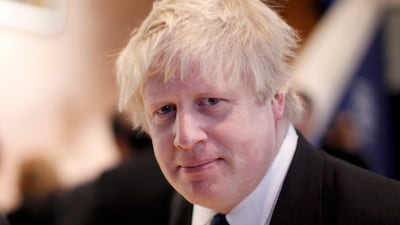The British foreign secretary Boris Johnson hopes to deepen his involvement in the Yemen conflict with a trip to the region that started Wednesday where he will meet with a number of high-ranking officials.
Officials said the first stop on the two-country tour is Oman and Mr Johnson will the travel on to Saudi Arabia on Thursday where he will meet with the Saudi Crown Prince Mohammad bin Salman. The conflict in Yemen will be a major focus of the talks, which will also range across foreign policy challenges and Riyadh’s Vision 2030 programme.
Britain and Saudi Arabia’s countering of what the British foreign office described as “Iran’s destablising activity in the region” will also form part of the talks, as will a joint-confirmation of the importance of the Iranian nuclear deal.
Mr Johnson will also use the trip to suggest ways for the UK to be a leading partner for Saudi Arabia’s ambitious socio-economic reform programme, Vision 2030.
The visit follows two days of talks on the Middle East with the US Secretary of State Rex Tillerson in London and international counterparts in Paris.
“Oman and Saudi Arabia both have crucial regional roles, particularly in finding a political solution to the crisis in Yemen. During my meetings this week I will reaffirm that there can be no military solution to the conflict – peace-talks are the only long-term solution for the people of Yemen,” speaking ahead of the visit, Mr Johnson said.
“In tandem, we must continue to address the humanitarian crisis in Yemen. There has been progress in recent weeks with the reopening of the Hodeidah and Saleef ports, allowing vital access for food and fuel. We also welcome the Saudi-led Coalition’s new humanitarian plan for Yemen. The UK continues to play a leading role in humanitarian efforts, as the second largest donor to the UN appeal,” he continued.
Meanwhile diplomats in New York revealed that Antonio Guterres, the UN Secretary General, had chosen former British diplomat, Martin Griffiths as his new special envoy to replace Ismail Ould Cheikh Ahmed of Mauritania, who is stepping down next month.
Mr Guterres had told permanent Security Council members — Britain, France, China, the United States and Russia — that Griffiths was his choice and was also consulting with Gulf countries among others.
The UN chief has yet to formally advise the full council of the appointment.
______________
Read more
UN appoints new Yemen envoy: report
Saudi Arabia and UAE discuss Yemen with US and UK
Tillerson says progress made on strengthening Iranian nuclear deal
______________
Mr Griffiths is the executive director of the Brussels-based European Institute of Peace and also helped create the Centre for Humanitarian Dialogue in Geneva which specializes in political dialogue.
A former British diplomat, Mr Griffiths was a mediation adviser to Kofi Annan during his Syria mission and also served as humanitarian coordinator for the Great Lakes region in the 1990s.
In 1994, he was appointed director of UN humanitarian affairs in Geneva and later became deputy to the UN emergency relief coordinator in New York in 1998.
The UN aid coordinator in Yemen announced Wednesday he was leaving his post just days after Mr Cheikh Ahmed also said he was stepping down.
Jamie McGoldrick, who has served as the Yemen humanitarian coordinator for two years, said he would be leaving the country for a position in New York.
“This is my last day here in Sanaa,” Mr McGoldrick told reporters in the Yemeni capital.
“I leave Yemen with a great deal of mixed emotion... sadness because of the suffering that is taking place, frustration because we haven’t been able to do more for the people in this country.”
Michael Stephens, a research fellow for Middle East Studies at the Royal United Services Institute, told The National there was greater urgency behind efforts to address the suffering in Yemen across the board. “The UN process needs to really get some teeth into it and the UK will need some guarantees the Omanis and Saudis are on board with the process,” he said.
He expects that the trip will see Mr Johnson seek to ensure Britain’s relationship with the GCC remains strong.
Additional reporting by AFP

